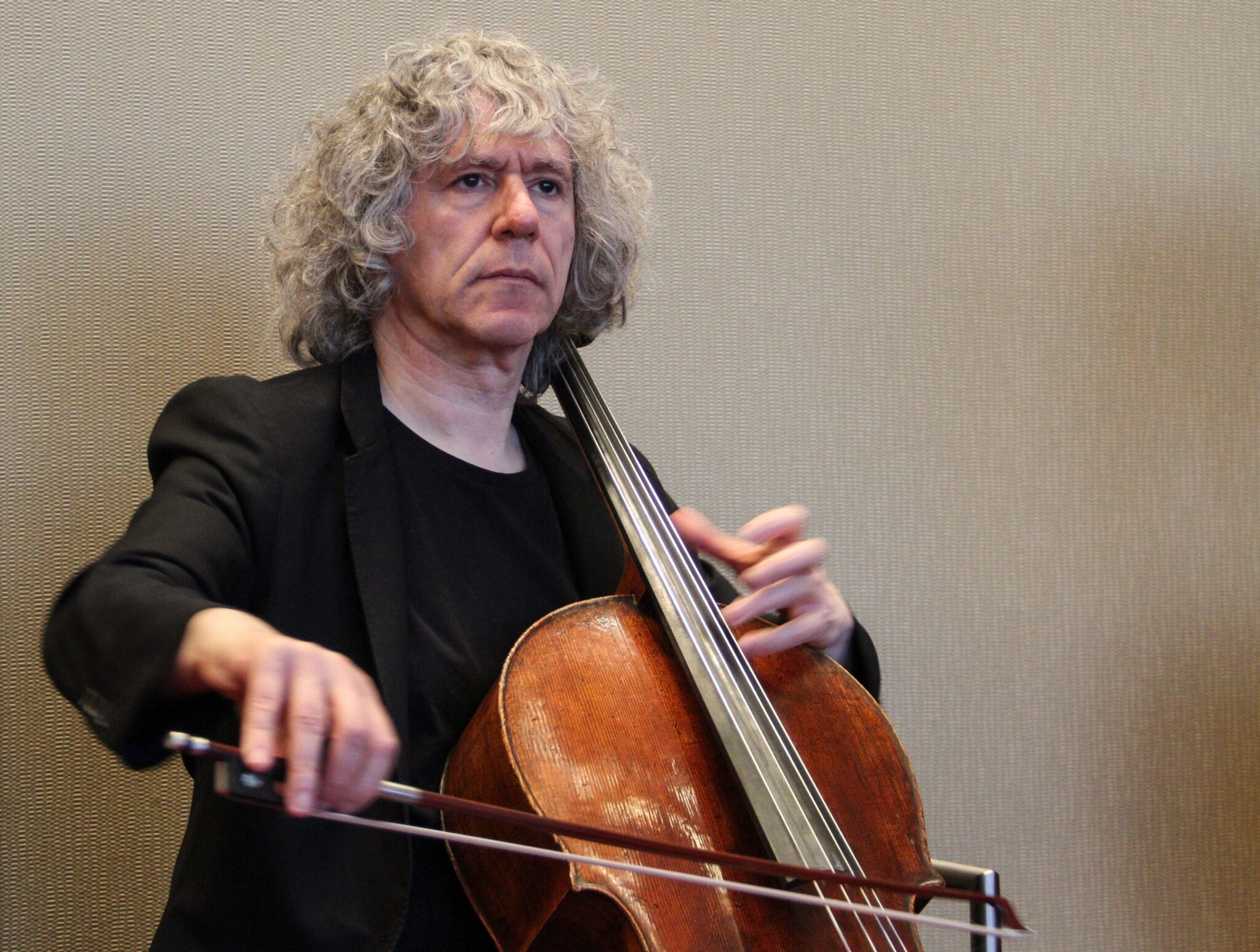Austere, stark, private; the Bach solo cello suites aren’t usually thought of as religious works. Bach wrote them, probably, as exercises for domestic use. They’re based on dance forms. And although for centuries few cellists paid them serious attention, these days everybody plays them – not least the illustrious Steven Isserlis, who was doing so, selectively, last month in North London’s Jewish arts centre, JW3.
It was a words-and-music music programme that included readings from his own book on the cello suites. And in the circumstances, it was interesting that Isserlis made it a platform for a controversial argument the book puts forward: that the suites, if played in order, tell the story of the life of Jesus.
To be blunt, there’s no great weight of evidence for this. But Isserlis, himself of Jewish background, speaks from his experience as a performer with conviction and sincerity. The fifth suite, which for many is the greatest, he believes to be a Passion narrative. And the sixth and final suite he hears as music that carries the story of the Crucifixion beyond the boundaries of Passiontide to Easter itself – with the cello imitating bells in celebration of the Resurrection, and a home key of D Major, which Bach tends to reserve for rejoicing.
As for the distinctly secular dance material that runs through the suites, Isserlis finds no problem there. Much of the Matthew Passion comes in dances. As do unequivocally spiritual works by Bach’s contemporaries: Biber’s Rosary Sonatas for example.
Am I totally won over by these speculations? Maybe not. But I’m attracted to them. And I’m haunted by the possibility that Isserlis may just be right. Bach scholarship advances all the time, albeit through great absences of documented fact. And anyway, I can’t imagine Bach objecting to the use of any of his works for spiritual ends. Whatever the intention.
Benjamin Britten’s spiritual loyalties were never clear. He tended to play hide-and-seek with his emotions; bel-ief, like sexuality, was something that he sometimes signalled, sometimes camouflaged. But he undoubtedly wrote music of religious leaning.<br>And among it was a series of intensely powerful chamber pieces he called Canticles – intended for the concert hall but setting texts that use religious images, from mystic verse based on the Song of Songs to TS Eliot’s imagined Journey of the Magi and a medieval miracle play on Abraham’s attempted sacrifice of Isaac.
There are five Canticles in total, composed across several decades for the voice of Britten’s lifelong partner, Peter Pears. And though it’s rare to hear them all sung together in a single evening, it happened last month in an outstanding concert at London’s Temple Church given by the tenor Allan Clayton with pianist Julius Drake and others, as the music required.
One of today’s leading English singers, with the appearance of an Old Testament prophet but the voice of an angel, Clayton was magnificent. His combination of heroic strength and pure, clear tone was mesmerising. As was Drake’s immaculate piano partnership (to call him an “accompanist” is an understatement: he’s far more than that).
The Canticles themselves impressed with their accumulative power. Wisely, Clayton & Co performed them out of order, saving the best till last. And last was Abraham and Isaac, which unfolds with all the drama of a mini-opera. Temple Church has an acoustic like a bath-tub, good for wallowing, though not for focus. But it made the mighty keyboard rumble at the crisis-moment when God intervenes sound truly devastating. And I’ve never heard the ending – in which everyone looks forward to the joys of heaven – done with such heart-breaking innocence or beauty. If the Britten Canticles aren’t actually testaments of faith, they carry possibility. And either way, the best of them are works of genius.
When English concert-promoters schedule Rachmaninov’s All-Night Vigil, they usually call it Vespers, for fear that audiences will take fright and not come. But this liturgical patchwork of Orthodox hymns and doxologies, including a Magnificat, Nunc Dimittis and Gloria, doesn’t really last all night. It’s two hours. And though the generally placid, emotionally contained nature of the settings can be an invitation to drift sleep-ily through it all, this wasn’t the case when the Birmingham-based choir Ex Cathedra brought the Vigil on tour to London’s St Martin-in-the-Fields: a space that denied the music the sepulchral resonance it needs, but still showed what this fine choir can do.
Richly substantial without being turgid, Ex Cathedra’s blended sound gave everything an inner glow: cushioned, enveloping, intense – and, to my ear, pretty authentic for a group of British voices from the Midlands. What it didn’t have was quite enough deep, soulful basses: there were two who looked the part (tall, bearded, like off-duty archimandrites) with the necessary bottom notes, but I’d have liked more. Where you find such people in the Midlands is another matter. Refugees from Ukraine, perhaps?



